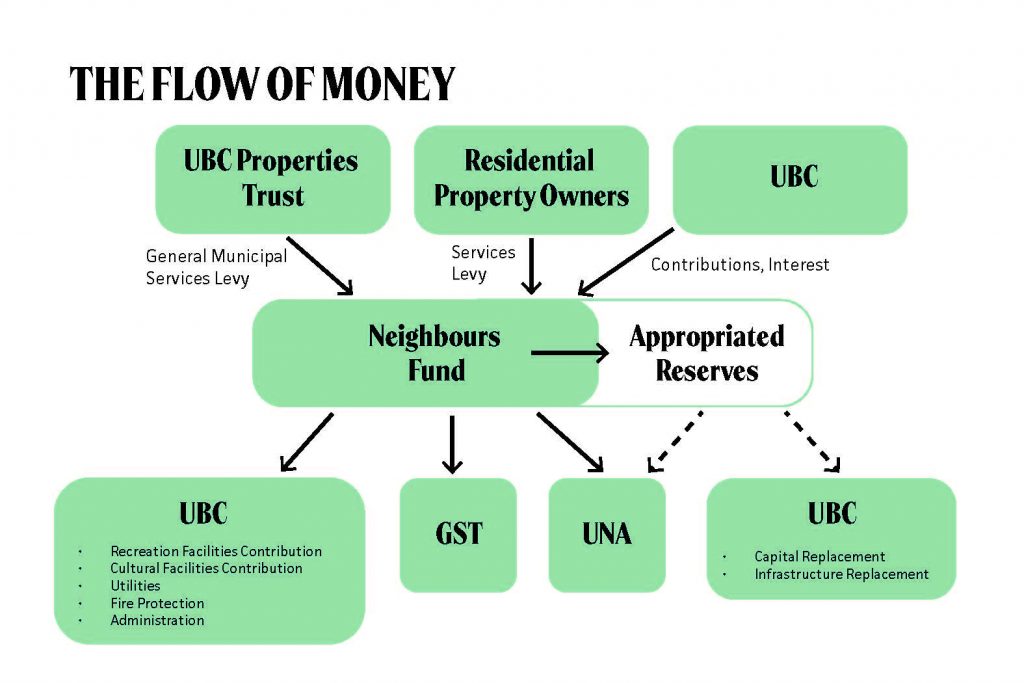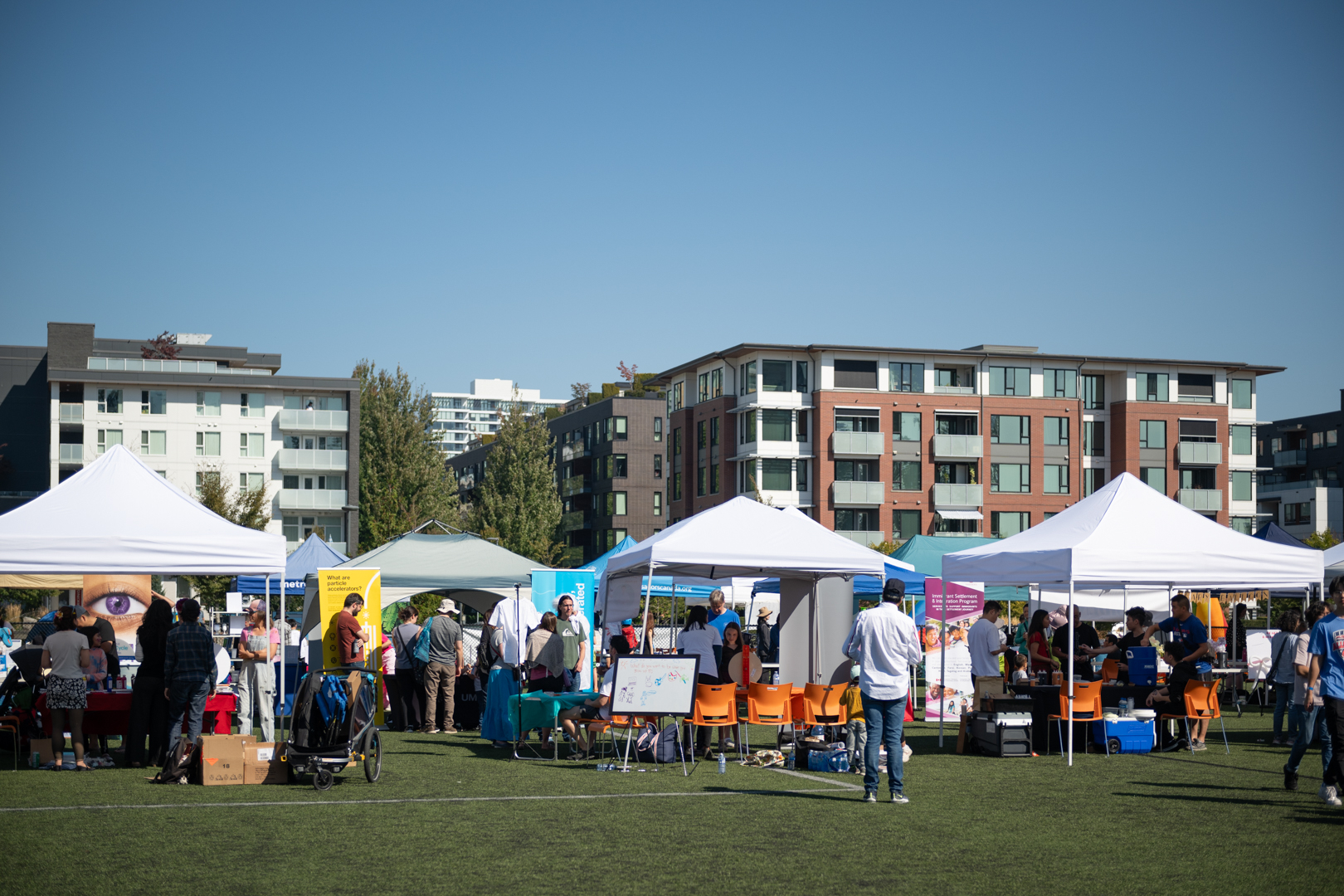Board members and staff are preparing to submit the 2024–2025 budget to UBC for approval before implementation by the UNA once public consultations have concluded.
The budget provides details on more than $8 million in spending for the 2024–2025 fiscal year, which runs from April 1, 2024 to March 31, 2025.
It allocates funds for core services such as waste collection, landscaping, parking enforcement, equipment upgrades, community programs such as camps, and big-ticket projects such as the upcoming replacement of the sports field at Wesbrook Community Centre.
An initial draft of the budget was prepared last fall and released to the public for feedback. The UNA then prepared a second draft and invited residents an additional opportunity to provide input with a deadline of February 4 at 12 a.m.
The budget has two parts: an operating budget that covers the UNA operations, and a capital budget used for upgrades to the Wesbrook Community Centre, covers the costs of parks and roadway improvements, and other expenses on assets such as fitness and computer equipment, furniture and fixtures.
Most of the money in the budget comes from the Neighbours Fund. The entire budget is also topped up from reserve funds and any surpluses from previous years.
UBC holds the Neighbours Fund account, which is funded by a levy paid by residential property owners in the university neighbourhoods and the General Municipal Services Levy, which is paid by UBC Properties Trust in respect of its buildings in the university neighbourhoods. The Neighbours Fund is designed to cover the municipal-like services outlined in the UNA budget.

The UNA will receive $5.6 million from the Neighbours Fund for the 2024-2025 budget, after UBC makes withdrawals for expenses such as storm sewers, fire services, and access to UBC recreation facilities for UNA residents.
Added to this figure is an estimated $1.4 million in revenues from the Wesbrook and Old Barn Community Centre culture and recreation programs, common area maintenance support from UBC of $708,653, revenue from additional UNA programs, collections from parking enforcement, and external grants.
Combined, these sources are expected to provide the UNA with $8,136,193 in spending power—an increase of 11 per cent from the 2023–2024 fiscal year.
In addition to core operations and expenses, the budget seeks to align with some of the UNA’s strategic priorities. As a result, the organization has set aside $7,500 for a volunteer recognition dinner, $90,000 for a tree management plan, and $12,000 for painting the interior of the Old Barn Community Centre. It also expands the UNA staff RRSP program at a cost of $55,000.
The 2024–2025 draft budget is balanced—meaning no surplus or deficit is expected after all estimated revenues and expenses are accounted for.
UNA Finance Manager Athena Koon told The Campus Resident, “As the community keeps growing, we are projecting the UNA to continue to be in stable fiscal health.”
Koon says the UNA’s public consultation efforts were met with a generally muted public response, with only one instance of feedback.
However, the budget has drawn criticism from at least one resident.
Brad Chen—a resident of Chancellor Place—has circulated an online petition with the title, “Demand Better Financial Management and Community Focus in UNA’s 2024–25 Budget. As of January 31, the petition carries 322 signatures.
Previously, Chen made a presentation to UNA directors during their monthly board meeting in October last year to voice his concerns over the first draft budget. After face-to-face meetings with directors, Chen said his efforts did not lead to any “substantive progress.”
Chen has authored a critique of the budget and the budgeting process for The Campus Resident, which can be read by clicking here.
Once the public consultations are finished, the UNA board’s finance and audit committee—made up of directors and staff as well as a representative from UBC—will review community feedback and present its recommendations to the UNA board before the final budget is submitted to UBC for approval and implementation by the UNA.
Under the Neighbour’s Agreement, UBC is entitled to receive the draft budget 45 days before the end of the fiscal year.
The university will assess whether expenditures are in line with stipulations of the Neighbours Fund.
EMMANUEL SAMOGLOU IS THE MANAGING EDITOR OF THE CAMPUS RESIDENT.
(NOTE – A previous edition of this article stated the UNA pays UBC for storm sewers, fire services, and resident access to UBC recreation facilities. To clarify, the UNA does not pay UBC for these items. The amounts are withdrawn by UBC from the Neighbours Fund. This distinction is important as it has tax implications. The article has also been edited for clarity and to emphasize the distinct roles the UNA and UBC play in the UNA budgeting process.)
